After a heated debate drew passionate pleas from both sides, Edgartown voters said no to leaving the Martha’s Vineyard Commission at a special town meeting Tuesday night, indefinitely postponing an article that would have taken the first steps to withdraw from the regional land use commission.
A total of 305 registered voters packed the Old Whaling Church for the special town meeting led by longtime moderator Philip J. Norton Jr.
The article to begin pulling out of the commission was originally backed by all three town selectmen, but in the end selectman Michael Donaroma led the move to postpone it, arguing in favor of a conversation between town boards and the commission rather than pulling out.
“We brought it here because we felt this was the place where all of this should be talked about,” Mr. Donaroma said after a debate that lasted an hour. “We brought it here to listen and so the town can hear our frustration. [The commission’s] a wonderful tool that’s done wonderful things,” he said.
Mr. Donaroma, who represented Edgartown on the commission for many years, noted the “wonderful” projects the commission has overseen and attributed it to good relationships between the commission and the town boards. “Can we do that again? I hope we can,” he said. “It’s a great tool but it has its deficiencies.”
The selectmen placed the article on the warrant to register their strong objection to a draft budget the MVC presented to them in October which called for 4.5 per cent pay increases for commission staff and increased the town’s assessment to $302,674. A second draft of the budget saw changes, with pay increases reduced to 2.5 per cent and Edgartown’s assessment kept at $286,829, the same as this year.
Commission assessments are determined using a formula based on equalized valuations; Edgartown has the highest assessment of the six towns because it has the largest land area, although individual taxpayers do not pay more than their counterparts in other towns.
If the article had passed, the selectmen would petition the legislature and if approved by the state, it would then return to the town for a second vote at a town meeting.
On Tuesday night commission administrator Jeff Wooden defended the budget. “We have a flat budget, it doesn’t get much better than that,” he said, adding: “I believe it’s foolhardy to have Edgartown withdraw from the commission. It’s the most cost-effective means to help safeguard the value of your home and the integrity of the Vineyard.”
Bruce Stone defended the assessment method, which is determined by statute, and said the selectmen’s fiscal concerns were aimed at the wrong target. “The equalized value method of the assessment is an attempt to make sure that any taxpayer, no matter where they are located, pays the equivalent amount towards the assessment,” he said. “As far as responsible spending is concerned . . . the tax levy has gone up 24 per cent for Edgartown. Our assessment from the commission has gone up $38,000 a year, our total tax levy has gone up $4.3 million. If the selectmen are concerned about cost and fiscal prudence of spending, I don’t think it’s the commission that’s the problem if our tax levies have gone up.”
Pia Webster, a former staff member for the commission and Edgartown voter, agreed with the selectmen’s pique but not the article. “It infuriated me about the 4.5 per cent pay raises, it is so tone-deaf, so blind, so dunderheaded and misguided,” she said. “I don’t know what the solution is but I really hope you vote this down tonight. I really hope this gives us a good enough scare so you do come back and you do really talk.”
Ron Monterosso had another view. He urged voters to approve the article and give the selectmen the option of petitioning the legislature, noting that the vote would ultimately return to another town meeting for a final decision.
“Why on earth would you forebode an option that you can preserve?” he said. “Why wouldn’t you preserve that option? Why would you take that chip away from the selectmen to represent us in any way that is appropriate?”
Benjamin Hall Jr. suggested the appointment of an oversight committee to make recommendations to the towns on how the commission could best be utilized and review their finances.
“The tensions we’re hearing and feeling today is the result of a fundamental flaw that exists in the legislation; there’s no oversight,” Mr. Hall said. “Under the legislation, the only way we can show our displeasure is to say we want out.”
But in the end, cooler heads prevailed.
“Please think about what a key role the [commission] has played in protecting the special places on this Island,” Chappaquiddick resident Don Crocker said. “We should be supporting the commission and should not be spending our time withdrawing from it. To lose the protection of the commission would be a catastrophic loss.”
In other matters on the warrant, an article seeking approval for the town to sign contracts with developers for a large solar panel project headed by the Cape and Vineyard Electric Cooperative was approved after a lengthy discussion. The project is intended to power the town’s municipal buildings and is aimed at reducing the town’s monthly electric bill from $35,000 to $17,000. Three six-acre sites have been selected for the panels, including one at Katama Farm, which is owned by the town and leased to the Farm Institute, a nonprofit educational working farm.
Morning Glory Farm owner James Athearn requested an amendment to the article that would exclude active farmland as a site for the solar panels.
“This Island needs more productive farmland, not less,” Mr. Athearn said, but in the end the amendment did not carry.
Voters also approved a conservation land swap that is intended to clear the way for a restoration project at a historic World War II hangar at the Katama Airpark. The Nature Conservancy will receive 22 acres of conservation land off Pennywise Path in exchange for expansions planned at the airpark. The town will now petition the state legislature for a special act to allow a change in the conservation restriction at the airpark.
And voters approved an article to allow personnel restructuring at the Council on Aging and another for new water pumps for the Island Grove sewer project.

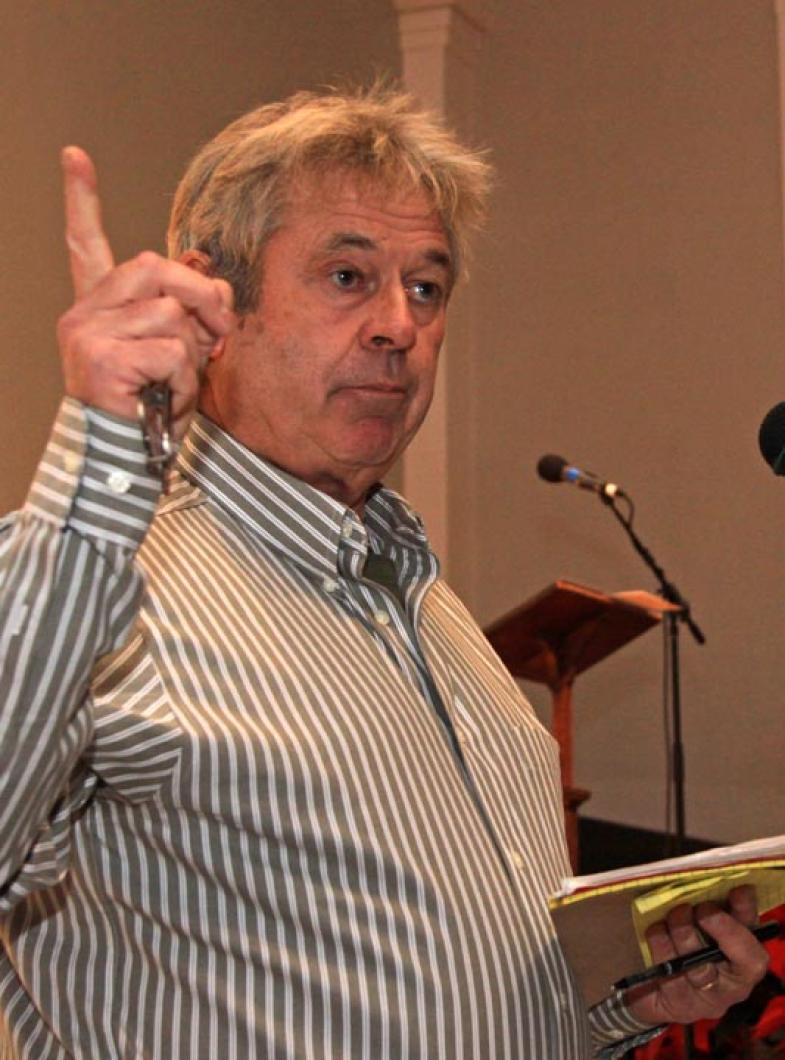

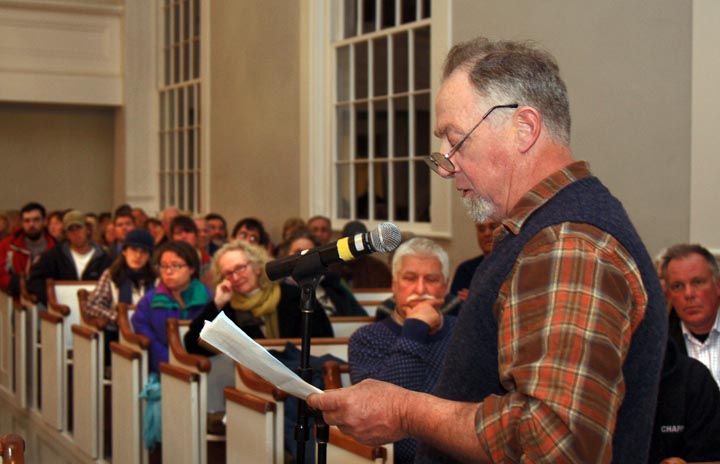
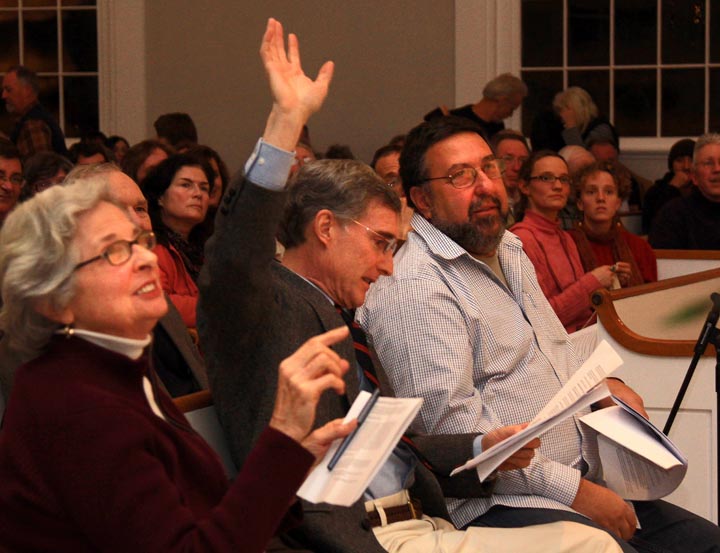
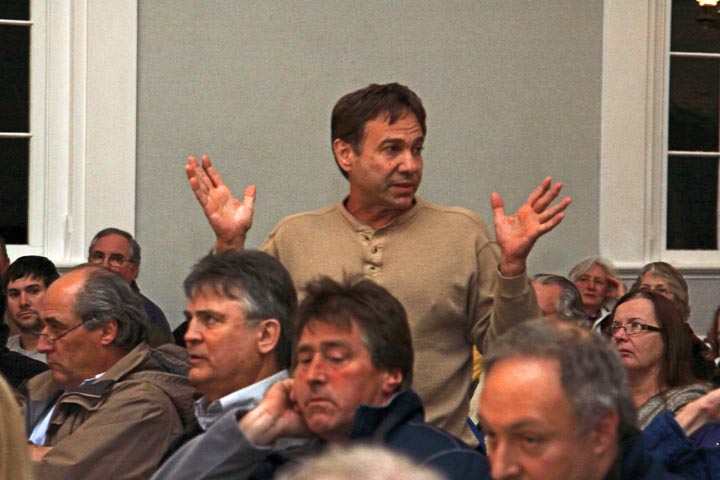
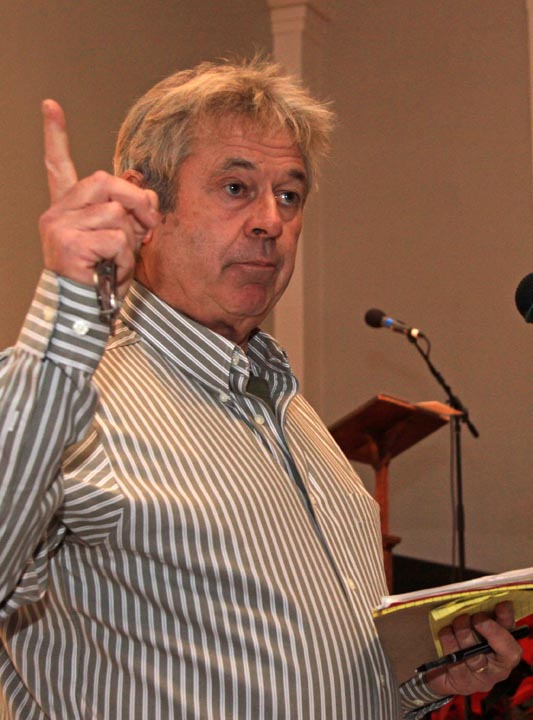


Comments (1)
Comments
Comment policy »